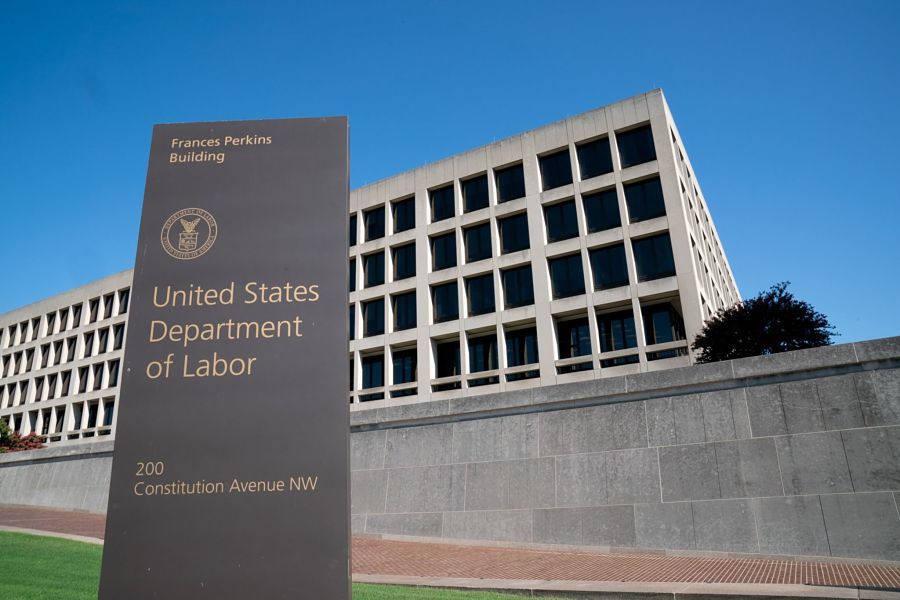

The Department of Labor’s long-awaited rule that eases restrictions on ESG in 401(k) plans goes into effect this week, but a coalition of Republican state leaders and oil groups is trying to stop that.
Last Thursday, 25 states filed a lawsuit in federal court in Texas seeking an injunction and a permanent ban on implementing the DOL’s rule, which is formally called “Prudence and Loyalty in Selecting Plan Investments and Exercising Shareholder Rights.” Along with the states, the list of plaintiffs includes oil company Liberty Energy, the Western Energy Alliance and James Copland, a senior fellow at the Manhattan Institute, a conservative think tank.
A lawsuit challenging the DOL’s rule was expected, legal professionals said. But despite the resources being put into the case, it faces slim odds of success.
“The Biden administration promulgated a very solid rule from an administrative perspective,” said Bradford Campbell, a partner at Faegre Drinker, who led the DOL’s Employee Benefits Security Administration under former President George W. Bush. “It would be very difficult to demonstrate that it wasn’t properly promulgated.”
In the complaint, the plaintiffs claim that the DOL’s rule contradicts the Employee Retirement Income Security Act, that it went beyond the agency’s authorization granted by Congress and that the DOL was arbitrary and capricious in drafting it.
The case was filed in the Northern District of Texas, which observers said is more likely to side with the plaintiffs than other districts might be. However, convincing a judge that the DOL acted outside of its jurisdiction will be difficult at best, lawyers said.
In part, that’s because the DOL’s rule doesn’t require plan fiduciaries to consider ESG factors when selecting investments — it just allows them to. That fact puts the rule in line with laws that have been on the books since 1978 — more so than rules finalized during the Trump administration in 2020 that were never enforced, Campbell said. The Trump-era rules, widely considered to have a chilling effect on the inclusion of ESG factors in retirement plans, specifically prohibited the default investment options in retirement plans from being sustainable or responsible funds. Unlike the Trump-era DOL rule, the Biden administration’s rule does not single out specific investment types for extra scrutiny, Campbell noted.
“The Biden administration resisted the temptation to bias in favor of ESG,” he said. “It strikes me that the new rule is more consistent with the regulatory history than the 2020 rule was.”
Not only will it be difficult to convince the court to grant an injunction, but arguing that the plaintiffs have standing to bring their claim will also be a challenge, Campbell said.
He cited the example of a 2019 lawsuit filed by a handful of Democratic-leaning states seeking to block the Securities and Exchange Commission’s Regulation Best Interest. At the appellate court level, the plaintiffs convinced only one of three judges on the panel that they had standing.
“Whether it’s the blue states suing the SEC or the red states suing the DOL, it’s very difficult for the states to argue that they have standing to address a regulation that preempts state law and is in the federal realm,” Campbell said.
Further, the new DOL regulation’s only reference to ESG clearly states that fiduciaries can consider those factors in relation to risk and return on an individual basis.
“In other words, if an ESG factor is material to the risk and return analysis, it must be considered and given appropriate weight,” Fred Reish, also a partner at Faegre Drinker, said in an email. “It is hard to see a successful challenge to that concept.”
The district in which the case was filed could be more sympathetic to the claims than others.
“They will get as best a hearing as they could from that district,” said Bryan McGannon, managing director of US SIF: The Forum for Sustainable and Responsible Investment. “I would not be surprised if they got a favorable ruling out of the district court.”
While the substance of the rule is difficult to challenge, the process by which the rule was made is an easier target — the plaintiffs’ claims are made under the Administrative Procedure Act.
“This is where conservative courts might have a different view than the DOL,” McGannon said.
It was inevitable that the DOL’s ESG rule would face a legal challenge, and in the current environment the political underpinnings of the attack are evident, he said.
“It’s largely partisans who are opposed to it — and they are opposed to it for political reasons rather than substantive reasons,” McGannon said.
The inclusion of ESG factors in retirement plans “is the free market working,” and the attack on it “is politicians coming in and telling fiduciaries what they can and can’t consider in their investment decisions,” he said. “That should be concerning to people of all political stripes.”
This story was originally published on ESG Clarity.

From outstanding individuals to innovative organizations, find out who made the final shortlist for top honors at the IN awards, now in its second year.

Cresset's Susie Cranston is expecting an economic recession, but says her $65 billion RIA sees "great opportunity" to keep investing in a down market.

“There’s a big pull to alternative investments right now because of volatility of the stock market,” Kevin Gannon, CEO of Robert A. Stanger & Co., said.

Sellers shift focus: It's not about succession anymore.

Platform being adopted by independent-minded advisors who see insurance as a core pillar of their business.
RIAs face rising regulatory pressure in 2025. Forward-looking firms are responding with embedded technology, not more paperwork.
As inheritances are set to reshape client portfolios and next-gen heirs demand digital-first experiences, firms are retooling their wealth tech stacks and succession models in real time.
